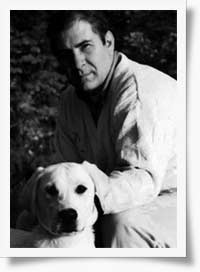 Increasingly as I grow older, I find myself considering the decisions that dictated the direction of my life.
Increasingly as I grow older, I find myself considering the decisions that dictated the direction of my life.
I chose not to attend my high school graduation ceremony, eager to head for Washington, D.C. where I had a summer job at the U. S. Senate. Though it was not a conscious decision at the time, it is clear now I was making a clean break with my past. I still think of the Rockies as home but I never went back.
The separation was so complete I don’t remember – if I ever knew – who spoke to my graduating class. Instead, I marked my transition to college and the real world by reading essays from Oliver Wendell Holmes, Jr. This I remember clearly because one passage has always stayed with me.
“As life is action and passion,” Holmes said, “it is required of a man that he should share the passion and action of his time, at peril of being judged not to have lived.”
Holmes’ observation came from the perspective of a civil war veteran injured three times in battle, Harvard law professor, Associate Justice of the U. S. Supreme Court for 30 years, and the oldest man to have ever served on the Court. Clearly, he had walked the talk and “lived” fully. I resolved to follow his example and embrace life. I was confident Washington would provide abundant opportunity.
A few years later, Doc English, my favorite teacher in law school, telegraphed another change of directions when he told me I probably would not make a good lawyer because I had an overdeveloped sense of justice. A Philadelphia lawyer with years of trial experience, he knew what he was talking about. It took me several years, including a year clerking with a law firm, to figure out he was right.
These things – my overdeveloped sense of justice and desire to share in the action and passion of my time – led me to the Mall 50 years ago. The March on Washington was an unprecedented event. I wanted to show my support and be part of it.
The collective memory of this event now focuses on Martin Luther King and his powerful words but the moment wasn’t so defined at the time. King was one 18 speakers assembled for the occasion. All of them had something to say. It took history to show us King said it best.
My strongest memory of the moment, then and now, was not what the speakers had to say but the spirit of the occasion. Everyone there knew we were part of something important, something special and transcendent. The silent witness provided by the peaceful presence of so many people seeking justice spoke eloquently to the collective conscience of America, challenging us to live up our ideals.
The other indelible memory of the event was that it was permeated by fear. The potential for violence was almost palpable. Embedded in all that and perhaps feeding it was the unstated understanding that things were changing. For most people, particularly those who embraced this change, Dr. King was a hero, a prophet who signaled the direction. But some saw him differently.
The Federal Bureau of Investigation (FBI) was concerned enough by the march and Dr. King’s speech to step up their investigations of the Southern Christian Leadership Council and target King specifically as an enemy of the State. Speaking for the FBI, William C. Sullivan, head of Bureau’s intelligence operations, said, “We must mark him now, if we have not done so before, as the most dangerous Negro of the future in this Nation from the standpoint of communism, the Negro, and national security. Prominent politicians lead by Senator Strom Thurmond were quick to agree and launched an attack on the March, labeling it Communist.
This animosity did not go away quickly. When Dr. King was assassinated five years later, I was in law school. I had just met my favorite law professor and was about to be drafted for Vietnam. I watched as much of Washington went up in flames. I remember seeing the smoke from the steps of the Capitol and talking with other Senate staffers about the riots that followed with sadness and disbelief. No one knew where it would lead or how it would end.
The elevator talk that day was all about Dr. King’s assassination and the tragic events it triggered. On one of my runs, a passenger heard the discussion and held back. After everyone else had cleared he said, “It was about time somebody killed that son-of-a-bitch.” In shock, I watched Strom Thurmond walk off my elevator and head down the hall.
It’s been fifty years. Everyone knows a lot has changed. Everyone knows a lot remains to be done. For many people, the American Dream remains unfulfilled. But it’s worth remembering that America is and always will be a work in progress. America is an ideal to cherish and a dream to pursue. We have come a long way but we still have a long way to go. Every generation is challenged to share the action and passion of its time and form “a more perfect union.”


I really appreciate this personal reflection and reminder to all that America is a “work in progress” and “a dream to pursue.” It is easy to get caught up and overwhelmed by the immense need around us, but hope shines more brightly each time we witness compassion in action.
I didn’t know you were at the march. This is a beautiful reflection. Thanks for posting it.